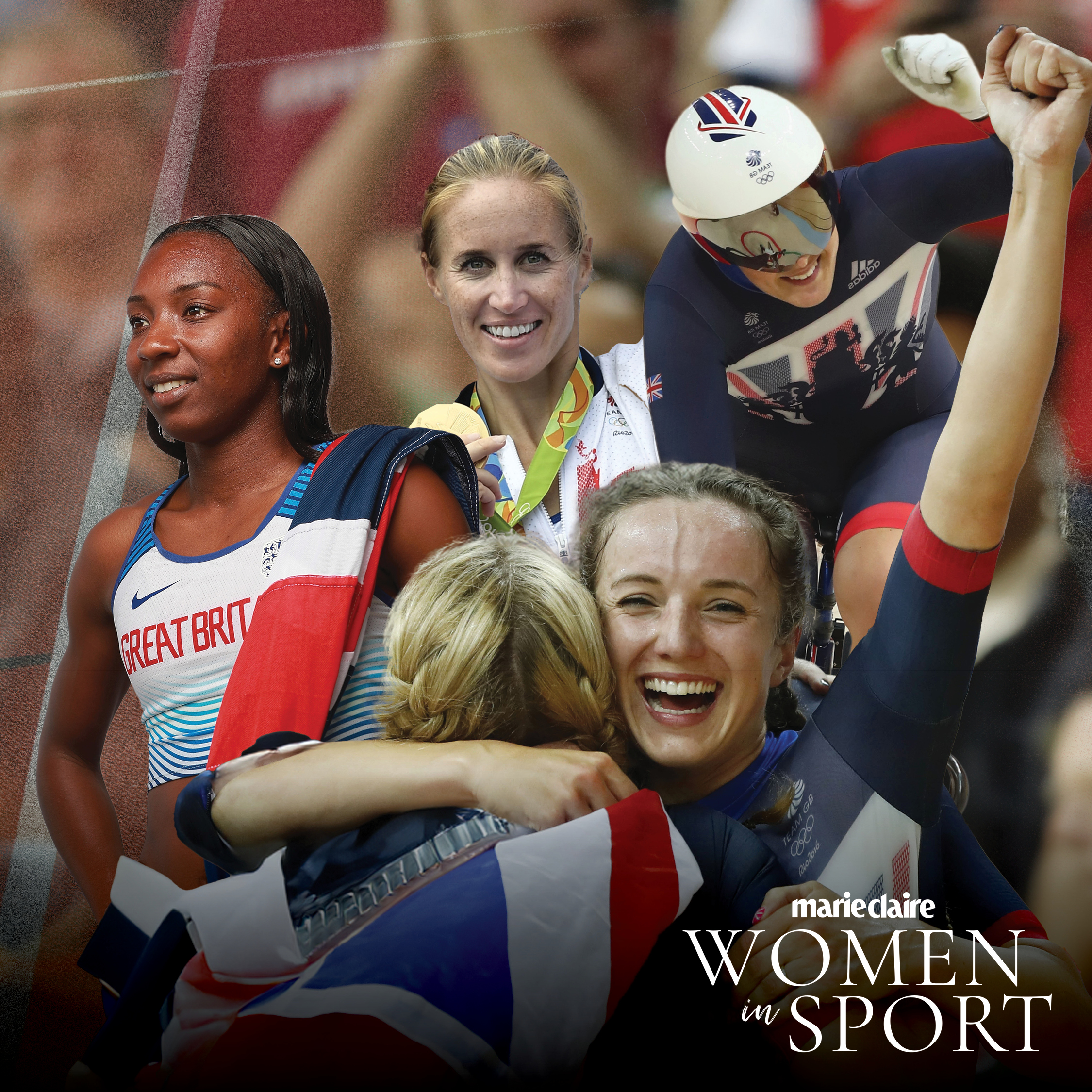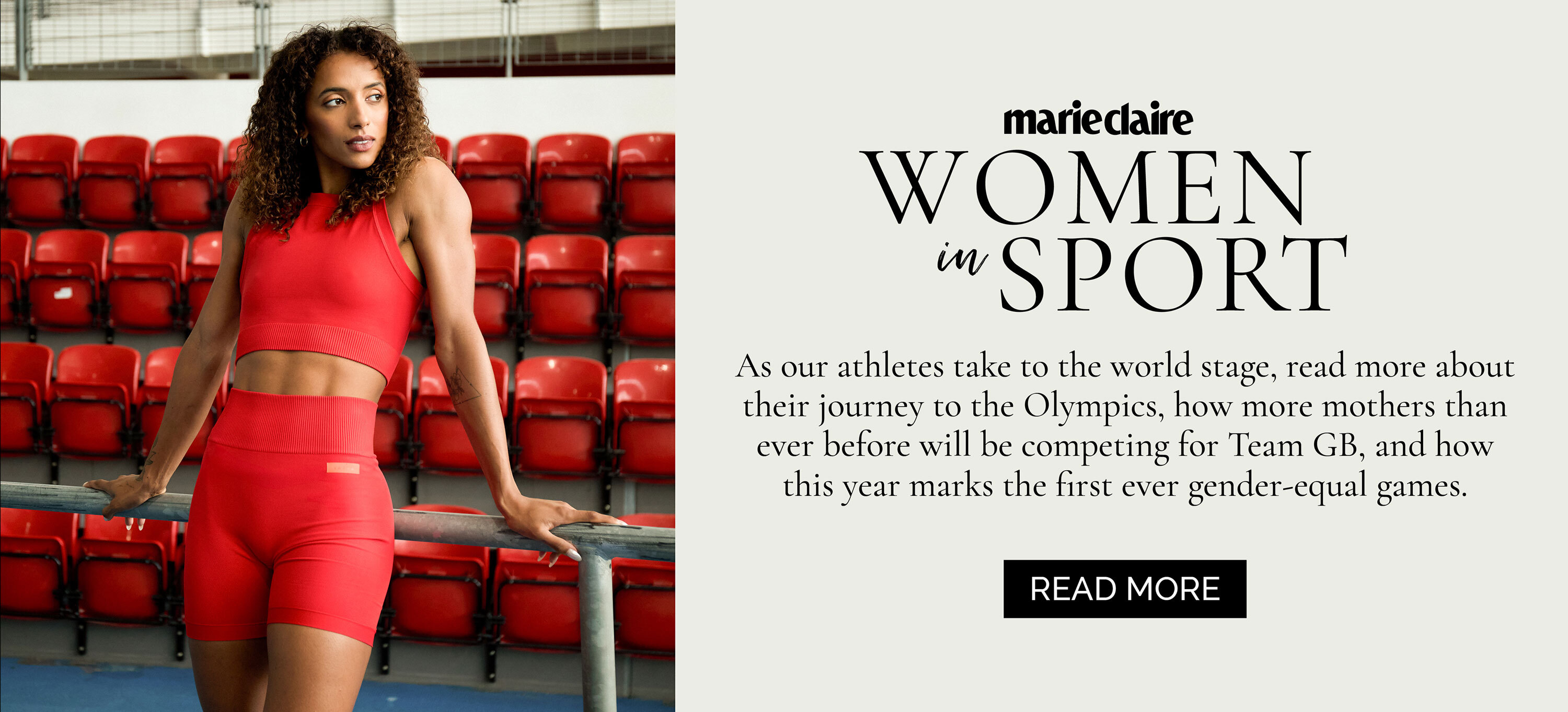
You'll likely know by now that Team Great Britain had more mothers on the team this year than ever before. A total of nine women, including two-time Olympic rower Helen Glover, Olympic shooter Amber Rutter, and Olympic equestrian Rosalind Canter, all returned to their sports at the highest level.
Amazingly, of those nine mothers who competed for Britain in Paris, an impressive seven returned home with Olympic medals - a near 80% success rate. From shooter Amber Rutter’s impressive silver, which she achieved just three months after giving birth, to rower and flagbearer Helen Glover's silver, the Team GB mums truly dominated this year.
What the medals do an excellent job of proving is that women don't have an expiry date, and having kids certainly doesn't have to put an end to your career, sporting or otherwise.
One thing all of these women have in common, though, alongside their evident talent and athletic prowess, is their dedication to challenging the misconception that women are at their physical peak pre-giving birth.
And as a mother myself who's also found my fitness stride post-giving birth, not pre, I couldn't be happier that misconceptions are shifting.
My love of running has always, ironically, gone hand in hand with being a mum. Although I ran pre-kids, once I had children, pounding the pavements became a sanctuary for me – providing headspace, time alone, a boost for my mental health not to mention a reason to leave the house.
In the early days, it wasn’t easy to manage. I roped in family members to help with childcare, bought high-vis gear so I could go out when my husband got home from work, and never (and I mean never) skipped a session – because who knew when I’d make it out again? I had to take my chances when they came.
Being pregnant wasn’t going to stop me, either. In my third pregnancy, I happily ran until late in my second trimester, when I reluctantly stopped as cramping and ligament stretching got too much to bear. That said, the raised eyebrows in the park as I trotted with my visible bump did bother me.
The default position for exercising in pregnancy is negative. People are quick to offer their opinions – and trust me when I say, none of them were good. Alongside this, you also have to deal with pelvic floor problems, the issue of finding the right sports bra when feeding, and often, the list feels never-ending.
Imagine then, for a moment, just how tough it must be for elite athletes who are mums. The weight of judgement, the fact that so many people view having a baby as a career-ending choice, the pressure to return to training and the juggling of childcare responsibilities with caring for an all-consuming tiny human.
With this in mind, we ask the question: why are we still underestimating mothers in sport? And while you're here, make sure to check out our cover interview with Team GB sprinters Daryll Neita and Laviai Nielsen, 14 things you didn't know about the athletes, or our deep dives on the lack of research into female athletic performance and the most iconic Olympic fashion moments.
As Team GB welcomes more mums than ever before, why are we still underestimating mothers in sport?
Historically, there’s no doubt that motherhood and elite sport have been seen as incompatible. While there are examples of mothers through the years who have succeeded in elite sport (Dutch track and field athlete Fanny Blankers-Koen famously won four gold medals at the 1948 Olympics as a mum of two, earning her the dubious title of the "Flying Housewife"), it’s only been in the last few years that more women who are mums have been returning to top-level sporting careers post-birth.
For the trailblazers, it hasn't been straightforward. These mums are challenging cultural, societal and traditional stereotypes as well as pushing back on patriarchal notions of both child-rearing and physical capabilities in one fell swoop.
But, with the lead in Female Athlete Health and Performance at the UK Sports Institute, Dr Richard Burden, telling MC UK that "biologically, there's no reason that women can’t come back and perform at the same level post-partum," why do we still struggle with the notion of mums as athletes?
Gender ideology plays a large part
Let’s not forget that it wasn’t until 1900 that women were "allowed" to compete in the Olympics at all because of the assumption that vigorous activity was unfeminine and could impact fertility. Bearing in mind that the first official Olympics were held in 77BC, that’s a very long time.
Even once the "falling uterus" myth was dispelled and women started (albeit rarely) competing, having a baby was seen as a career-ending event, something that signalled a woman's retirement from sport. Culturally, it’s still expected that women will undertake the lion’s share of childcare responsibilities, and traditionally there was the assumption that the physiological pressures of childbirth and motherhood would prohibit a return to elite-level sport. These factors combined made it difficult for mothers to resume a successful career.
But in the last decade, we’re seeing those assumptions being not only challenged but downright smashed left, right and centre. The list of mothers who are not only returning to elite sport but winning medals and smashing PBs is ever-growing: Jasmin Paris, Jessica Ennis-Hill, Dame Sarah Storey, Serena Williams, Helen Glover, Paula Radcliffe and Charlotte Dujardin, to name but a few.
So why are things changing now?
Things are changing, and that’s undoubtedly a good thing. But why now? We spoke to the experts leading the change alongside the athletes to find out more.
“There are a number of reasons we are seeing record numbers of mums on Team GB this year,” the chief executive of Women in Sport, Stephanie Hilborne OBE, tells MC UK. “There are also more women competing overall, with Paris 2024 being the first Games with the same number of female and male athletes.”
“It's far more socially acceptable to go back to elite sport after having a baby today,” agrees Hilborne. “We're also seeing high profile women being celebrated as mothers and athletes, and who return to sport, showing us what is possible and demonstrating that just by becoming a mother, our desire to be competitive and win in sport doesn’t just cease to exist.”
And the ramifications of this extend far beyond elite sport, with mothers in wider society being inspired to get moving - which, studies (such as this one, published in the American Academy of Pediatrics journal) show impacts the activity levels of children too.
Mothers are proving they can perform and compete at the highest levels
“The old adage of "if you can see it, you can be it," rings true here,” says Dr Burden. “If female athletes see that it is possible to start a family mid-way through their career, then come back and still have a career at the top level, then they can start to believe that motherhood really isn’t the career-ending choice that it used to be.”
Alongside this, greater visibility has come the need for more support for mothers in sport, both physiologically and practically. “We’re supporting pregnant and post-partum athletes more than ever before because there are more of them than there historically ever have been,” acknowledges Dr Burden. “The space has been forced to learn, innovate and understand mothers in sport, and it has become slightly more normalised.”
And far from it being a purely physical challenge, ask any elite athlete who is a parent about the most challenging part of returning to their career, and they'll unequivocally tell you that it's not the training or the physiology that's the toughest - it's the practical considerations like childcare.
"The biggest hurdle in getting back to competing at the top level is practical, definitely," stresses Team GB Olympic rower and mum of three Helen Glover. One of Britain's greatest ever rowers, she has over 20 gold medals to her name and is currently aiming for the top in Paris 2024. "I think it’s really interesting that for everyone I’ve spoken to, whether in sport or out of sport, childcare is the main issue."
This year, for the first time, the Olympic Village has a creche for younger children, allowing mum athletes to travel with their children - something that has been absolutely crucial for rower Mathilda Hodgkins-Byrne, mum to two-year-old son Freddie.
"It’s awesome that there’s a nursery and that kids can come on things like training camps with us now," she tells MC UK. "I've always had to bring Freddie with me when I train, from the earliest days, since getting childcare when they’re really tiny is tricky. It's great to see it being normalised and if I can inspire mums everywhere to get out there and get moving, with their little ones in tow, then that's incredible."
Challenging the assumption that being a mum is a detrimental to athletic performance
Interestingly, far from being a negative, there is some limited evidence that being a mum can, in fact, improve athletic performance.
A 2022 study published in the Medicine & Science in Sports & Exercise Journal examined the training and performance of 42 elite runners, both during and after pregnancy, and found that 46% of them improved in performance post-birth. And while this is only a small study, it does raise interesting questions about whether being a mum is actually a barrier to smashing training times.
"As with all research into women’s sport, studies into mothers who have returned to elite sport are lacking," says Hilborne. "That being said, emerging research shows that pregnancy can be physiologically beneficial for some women’s sporting performance and there are certainly examples of female athletes performing better after returning from having a baby."
Back in 1991, Liz McColgan ran a personal best at the World Championships only seven months after giving birth to her daughter Eilish, while Paula Radcliffe won the New York marathon as a mum.
"When I first came back last year, I was on a very reduced training programme," says Hodgkins-Byrne. "But the speed with which I got back to full training was incredible - I never would have believed before I had Freddie that I would have achieved it so quickly. And now, I’m faster and stronger than I was before I had him."
Glover agrees, and notes that the shift in perspective that motherhood has gifted her is also an advantage. "The perspective shift has been a bonus, not a hurdle, for me," she tells MC UK. "I'm doing much more focussed training, so when I get home at the end of the day I can leave it all behind and focus on my children. I've been massively surprised to be getting the same, if not better, results from what some might call ‘less’ training. I feel like I’m getting more out of it than I ever have done, and the biggest learning is that actually, training less or thinking about things less doesn’t affect the outcome at all. It hasn’t affected where I am physically, going into Paris, but having more perspective has made the journey much more enjoyable."
Regardless of whether the mums on Team GB return from Paris with medals round their necks or not, they’re smashing those maternal myths and inspiring a whole generation of girls and women to pursue their dreams – and that’s winning in our eyes.








